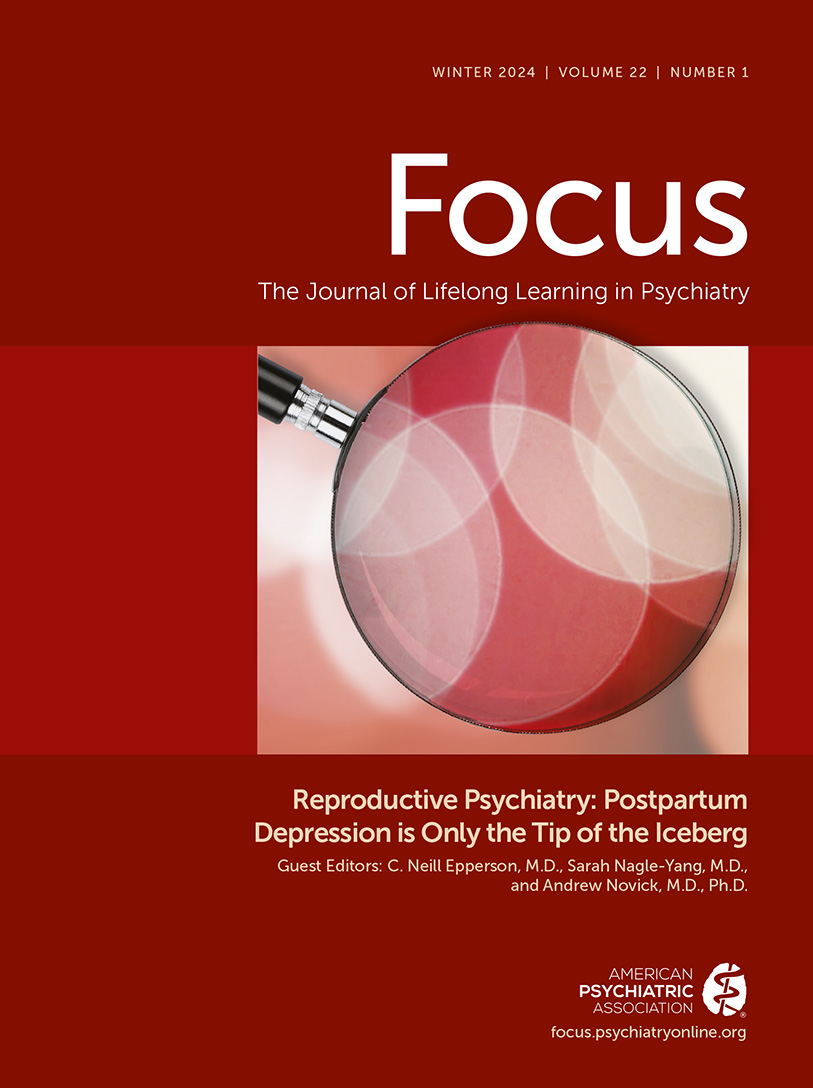Abstract
Perinatal mood and anxiety disorders (PMADs) are the most common complication of childbirth. When poorly controlled, they are associated with worse obstetric outcomes, such as higher rates of preterm birth and unplanned cesarean delivery. They are also associated with suicide, a leading cause of perinatal maternal death. This article provides an overview of evidence-based recommendations for screening, assessment, and management of PMADs, including suicide risk assessment and management and pharmacological and nonpharmacological treatment options compatible with pregnancy and lactation. Although specialized reproductive psychiatrists can provide expert guidance for the management of PMADs, their scarcity means that most patients will not have access to this expert care and instead will seek guidance from general psychiatrists. This article provides a clinical guide for generalists that is based on the best current evidence, including recently released treatment guidelines.
Access content
To read the fulltext, please use one of the options below to sign in or purchase access.- Personal login
- Institutional Login
- Sign in via OpenAthens
- Register for access
-
Please login/register if you wish to pair your device and check access availability.
Not a subscriber?
PsychiatryOnline subscription options offer access to the DSM-5 library, books, journals, CME, and patient resources. This all-in-one virtual library provides psychiatrists and mental health professionals with key resources for diagnosis, treatment, research, and professional development.
Need more help? PsychiatryOnline Customer Service may be reached by emailing [email protected] or by calling 800-368-5777 (in the U.S.) or 703-907-7322 (outside the U.S.).



